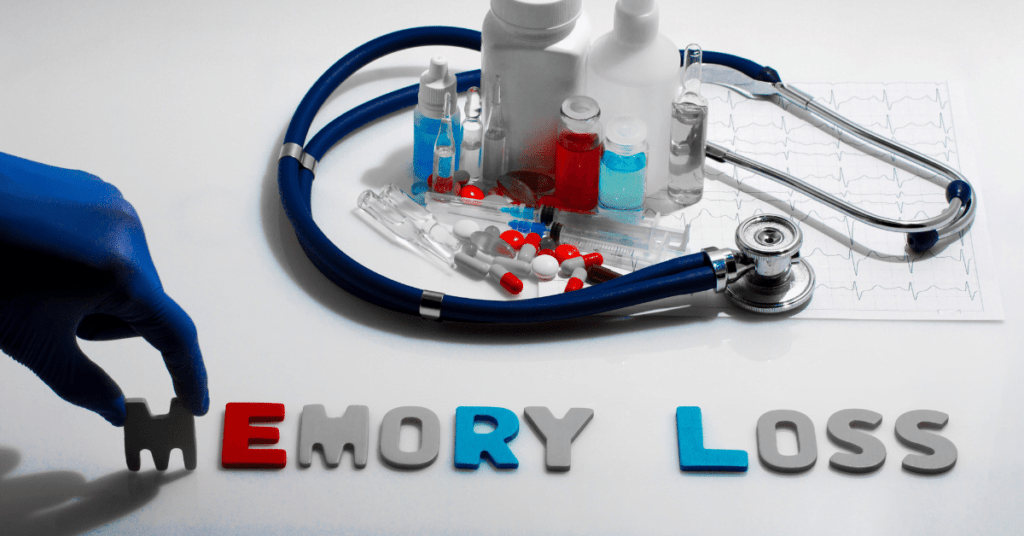Contents
- 1 Hypothyroidism And Memory Loss Causes
- 2 What Is Hypothyroidism?
- 3 How Does Hypothyroidism Affect Memory?
- 4 Symptoms Of Hypothyroidism
- 5 How Is Hypothyroidism Treated?
- 6 Can Memory Loss Be Reversed With Treatment?
- 7 Conditions That Can Cause Memory Loss
- 8 Symptoms Associated With Memory Loss
- 9 A Word From MantraCare
Hypothyroidism And Memory Loss Causes
 Hypothyroidism is one of the most prevalent causes of memory loss. A person with hypothyroidism may experience forgetfulness, mental confusion, and more as a result of the imbalance in their thyroid hormones. Read on to learn more about how it works, the signs to look for, and what you can do if you are experiencing these symptoms yourself.
Hypothyroidism is one of the most prevalent causes of memory loss. A person with hypothyroidism may experience forgetfulness, mental confusion, and more as a result of the imbalance in their thyroid hormones. Read on to learn more about how it works, the signs to look for, and what you can do if you are experiencing these symptoms yourself.
It’s not just the elderly who experience memory loss. New research reveals that people of all ages can suffer from it, and one major cause is hypothyroidism. Read on to learn more about this condition, how it affects your memory, and what you can do if you are experiencing these symptoms yourself.
Studies show that around 20 million Americans suffer from hypothyroidism. However, the actual number may be higher due to undiagnosed cases. As one of the most common causes of memory loss, this condition can affect anyone at any time in their lives.
What Is Hypothyroidism?
Hypothyroidism is a condition that results when the thyroid gland does not produce enough thyroid hormones. This can cause a wide variety of symptoms, including memory loss. The thyroid gland is responsible for producing two important hormones: triiodothyronine (T3) and thyroxine (T4). These hormones play a major role in the body’s metabolism and energy production.
When the thyroid gland does not produce enough thyroid hormones, this can cause a condition called hypothyroidism. This condition can have a wide variety of symptoms, including memory loss. The reason that hypothyroidism can cause memory loss is that these hormones play a major role in the body’s metabolism and energy production. When there is not enough thyroid hormone, this can lead to problems with brain function and ultimately memory loss.
How Does Hypothyroidism Affect Memory?
Thyroid hormones help to regulate many aspects of bodily function, including mood, energy levels, and cognitive performance. When levels are low, as is the case with hypothyroidism, these functions can be impaired. This can lead to problems with memory, focus, and thinking skills.
Many of the symptoms of hypothyroidism are very similar to those experienced by people who are experiencing early stages of dementia. Memory loss is often one of the first symptoms, so being able to recognize hypothyroidism early can be beneficial in terms of establishing a proper treatment plan.
People who have chronic medical conditions or have suffered an injury may experience memory loss. Hypothyroidism can cause mild cognitive impairment, which may look similar to memory loss caused by other conditions. With this in mind, it’s important that patients visit their doctor for regular checkups and comprehensive testing if they are experiencing any symptoms. This will not only help you identify whether you have hypothyroidism but also rule out any other potential causes for your symptoms.
Symptoms Of Hypothyroidism
The most common symptoms of hypothyroidism include-
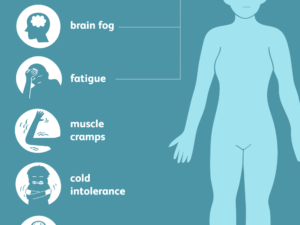
- Fatigue
- Weight gain
- Constipation
- Dry skin
- Hair loss
- Puffy face
Less common symptoms include-
- Joint pain and muscle cramps
- Slowed heart rate
- Low blood pressure
- Memory problems
- Mood swings
How Is Hypothyroidism Treated?
Most cases of hypothyroidism can be treated with thyroid hormone replacement therapy. This involves taking a synthetic thyroid hormone pill every day to replace the hormones that your thyroid gland isn’t making. Treatment usually starts with a high dose of the hormone. And then is gradually cut down to the amount that your body needs.
Can Memory Loss Be Reversed With Treatment?
There is limited evidence that suggests that memory loss may improve after treatment for hypothyroidism. However, more research is needed to determine if this is indeed the case. In most cases, however, memory problems are not reversible once they have developed.
If you are experiencing any of the symptoms of hypothyroidism, it is important to see a doctor. You should not try to treat this condition on your own without consulting a medical professional since there are other factors that may be causing the problem, such as a pituitary tumor.
If you have been diagnosed with hypothyroidism and are experiencing memory problems you should see your doctor for treatment to see if your memory loss reverses itself over time. Also, it is important to note that some medications may affect thyroid gland function or hormone levels. If you are taking any of these types of medication, it’s important to work closely with your doctor in order to get the right dosages adjusted so that hypothyroidism doesn’t exacerbate existing memory loss related to the drug.
Conditions That Can Cause Memory Loss

The connection between the human brain and memory is undeniable. We all have experienced a strong link, where just thinking about a past event can bring back memories that we may have long forgotten. This one-sided relationship is so powerful, in fact, that there are currently medical treatments available for Alzheimer’s disease — a condition where memory loss is so intense, it becomes difficult to carry out even the most basic daily activities without assistance.
Many of us experience less severe cases of memory loss from time to time, whether due to stress or another type of stimuli; however, if you notice new or worsening problems with your ability to remember things on an ongoing basis — especially if these issues coincide with other physical symptoms such as headaches or trouble sleeping — it is important that you seek medical attention as soon as possible. There are many conditions that can lead to memory loss, ranging from common illnesses like stroke and cancer to serious brain disorders such as Alzheimer’s disease, epilepsy, Creutzfeldt-Jakob Disease (CJD), or multiple sclerosis (MS).
This is a list of conditions that can contribute to memory loss:
Head Trauma
Head Trauma is a serious problem that can lead to memory loss. But it can be treated and possibly reversed. If you experience any type of head trauma then the first thing that should do is to go for a check-up by a medical professional. Get treatment for any fractures instantly (and for such things as brain bleeding there are medication treatments available). If you continue to experience memory loss after treatment or if your problems appear to not get better with time, this may indicate a more complex issue and additional tests may need to be performed.
Alzheimer’s Disease
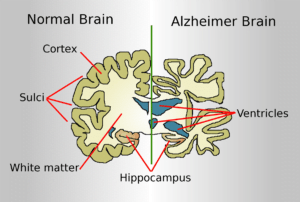 Alzheimer’s disease is one of the most common causes of memory loss in seniors. Some early warning signs include forgetting recently learned information, experiencing personality changes, and repeating stories or questions. In most cases, memory loss becomes more severe over time. It is important to note that there are medical treatments available for Alzheimer’s disease but it is difficult to reverse this condition once it has progressed significantly.
Alzheimer’s disease is one of the most common causes of memory loss in seniors. Some early warning signs include forgetting recently learned information, experiencing personality changes, and repeating stories or questions. In most cases, memory loss becomes more severe over time. It is important to note that there are medical treatments available for Alzheimer’s disease but it is difficult to reverse this condition once it has progressed significantly.
Alcohol Abuse
Memory problems due to alcohol abuse may not be reversible since brain damage can develop from the misuse of this substance. Memory loss related to alcohol can be severe and can involve a variety of cognitive functions such as problem-solving and decision-making abilities. Most people with heavy drinking problems will have noticeable declines in these areas including being unable to remember how much they’ve had to drink or other things that happened while under the influence of alcohol. Alcohol abuse will worsen existing memory problems associated with other medical conditions while also leading to new types of memory loss.
Stroke
The effects of a stroke depend on the severity of the brain injury and the area that was affected. Some people with strokes recover almost completely, but others may suffer permanent disabilities (including memory problems). The location of the stroke can lead to impairments in areas. Such as speech, movement, thinking, reasoning, judgment, emotions, and many other aspects related to cognitive function. The only way to stop further damage is through treatment provided by medical professionals in a hospital setting. Where lifesaving procedures are available (such as surgery or medication). Yet it is important for family members and friends to recognize when someone has suffered a stroke. So they can seek immediate care. If you or a loved one has been diagnosed with a stroke. It’s important to seek immediate medical attention to get treatment.
Anxiety Disorders
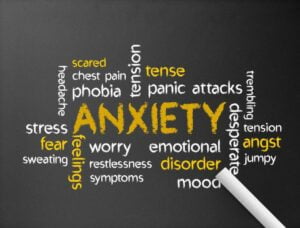 There are different types of anxiety disorders which include generalized anxiety disorder (GAD), social anxiety disorder, phobias, and panic disorder. While all of these conditions can be associated with short-term memory loss. They generally affect the ability to remember certain facts and events by interfering with the brain’s encoding and storage functions. Memory problems due to GAD may only last for a few minutes. While other types cause longer-term impairment over time. That can severely impact daily living activities such as work or school performance. This type of memory loss is often chronic. Yet there are treatment options available including medication and counseling services such as cognitive-behavioral therapy.
There are different types of anxiety disorders which include generalized anxiety disorder (GAD), social anxiety disorder, phobias, and panic disorder. While all of these conditions can be associated with short-term memory loss. They generally affect the ability to remember certain facts and events by interfering with the brain’s encoding and storage functions. Memory problems due to GAD may only last for a few minutes. While other types cause longer-term impairment over time. That can severely impact daily living activities such as work or school performance. This type of memory loss is often chronic. Yet there are treatment options available including medication and counseling services such as cognitive-behavioral therapy.
Depression
Depression is a mood disorder that can lead to a wide variety of problems such as changes in appetite, sleeping patterns, and energy levels. Memory loss is often one of the cognitive symptoms that may develop over time. In some cases, people with depression may have difficulty remembering specific details about an event or they may experience general forgetfulness (such as forgetting to take their medication). Unfortunately, memory loss related to depression is often not reversible without treatment. There are many different treatment options available for depression which include both medication and counseling services.
Sleep Disorder
People with sleep disorders often have problems with their memory. In fact, some of the most common complaints from people who suffer from sleep disorders are forgetfulness and difficulty concentrating during the day. This type of memory loss is generally reversible once the person gets sleep disorder treatment. Treatment for sleep disorders may include medications, changes in bedtime habits, or even surgery in some cases. If you have been experiencing memory problems, it’s important to consult with a healthcare professional to determine if you may be suffering from a sleep disorder.
Head Injury
Any type of head injury can lead to memory loss. This may be due to physical damage to the brain tissue or because of the effects of the injury on cognitive function. Memory loss as a result of a head injury may be temporary or permanent and can affect any aspect of memory including the ability to remember recent events, past memories, or factual information. If you have suffered a head injury, it’s important to seek immediate medical attention to assess the extent of the injury and to receive treatment if necessary.
Dementia
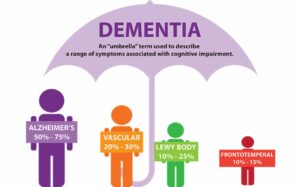 Dementia is a group of disorders that cause a decline in cognitive function. This often leads to problems with memory, thinking, judgment, and reasoning. Dementia can develop slowly over time or it can occur suddenly after a traumatic event. There are many different types of dementia, but all result in a deterioration of cognitive abilities. Unfortunately, there is no cure for dementia and the condition often progresses as the disease eats away at the brain. However, there are medications that can slow down the process of dementia which may result in a more favorable outcome for those with memory problems.
Dementia is a group of disorders that cause a decline in cognitive function. This often leads to problems with memory, thinking, judgment, and reasoning. Dementia can develop slowly over time or it can occur suddenly after a traumatic event. There are many different types of dementia, but all result in a deterioration of cognitive abilities. Unfortunately, there is no cure for dementia and the condition often progresses as the disease eats away at the brain. However, there are medications that can slow down the process of dementia which may result in a more favorable outcome for those with memory problems.
Vitamin B12 Deficiency
Vitamin B12 deficiency, or pernicious anemia, is a type of blood disorder that prevents the body from producing healthy red blood cells. And Vitamin B12 is necessary for many different functions in the body including brain function. This metabolic vitamin is stored in the liver and can be found in meat, fish, poultry, eggs, and dairy products. Many people believe that memory loss occurs only in seniors but this is certainly not true. It’s estimated that around 20 percent of people between 45-60 years old may suffer from some form of memory loss due to vitamin B12 deficiency. Which sometimes goes undiagnosed. Because other health problems such as an underactive thyroid gland (hypothyroidism) contribute to similar symptoms such as fatigue, forgetfulness, and mood swings.
Generally, the condition is diagnosed during a blood test which checks for proper red blood cell levels. If B12 levels are low people often take vitamin supplements to increase their daily intake of the nutrient. However, some individuals may need weekly or monthly injections to replenish their B12 supply at home without having to buy supplements.
Thyroid Disorder
Another hormonal disorder that’s closely associated with memory loss is hypothyroidism (an underactive thyroid gland). With this condition, the thyroid does not produce enough hormones. That can interfere with normal cognitive function including memory skills. Hypothyroidism often leads to general fatigue and lack of mental clarity which contributes to problems with concentration and attention spans. This condition may develop slowly over time or may be triggered by other health problems. These include anemia, vitamin B12 deficiency, diabetes, and depression. Symptoms of hypothyroidism often mimic the early signs of Alzheimer’s disease. This is why it’s extremely important to seek treatment for memory problems as soon as possible. If you suspect that your thyroid gland is not functioning properly. Make an appointment with your doctor right away for blood tests to determine proper hormone levels.
Brain Tumors
Many different types of brain tumors can affect cognitive function. This leads to various forms of memory loss depending on where the tumor occurs in the brain. Even small tumors can cause changes in mood or behavior that interfere with daily living skills including work and social interactions. Memory problems are often one of the earliest signs of a brain tumor and can be the first sign that something is wrong. Unfortunately, there is no one test that can determine if a person has a brain tumor. And a sure diagnosis is only possible after a series of tests including MRI, CT scan, and PET scan. Treatment for brain tumors varies depending on the type and size of the tumor but may include surgery, radiation therapy, or chemotherapy.
Hydrocephalus
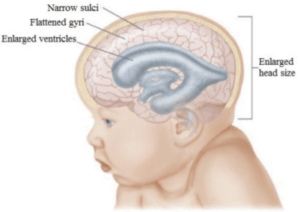 Hydrocephalus is a condition that affects the central nervous system and creates pressure on the brain which can affect cognitive function. This disorder occurs when the flow of cerebrospinal fluid between chambers in the brain (ventricles) becomes obstructed or blocked. The cerebrospinal fluid surrounds and protects the brain and acts as a shock absorber especially around the spine for protection from injury. When this protective barrier is compromised. It puts pressure on delicate tissues inside the head which may cause damage to vital areas such as memory circuits. Symptoms of hydrocephalus include headaches, irritability, nausea, vomiting, blurred vision, lack of coordination and unsteady gait (a staggering walk), problems with cognition including memory lapses, and seizures.
Hydrocephalus is a condition that affects the central nervous system and creates pressure on the brain which can affect cognitive function. This disorder occurs when the flow of cerebrospinal fluid between chambers in the brain (ventricles) becomes obstructed or blocked. The cerebrospinal fluid surrounds and protects the brain and acts as a shock absorber especially around the spine for protection from injury. When this protective barrier is compromised. It puts pressure on delicate tissues inside the head which may cause damage to vital areas such as memory circuits. Symptoms of hydrocephalus include headaches, irritability, nausea, vomiting, blurred vision, lack of coordination and unsteady gait (a staggering walk), problems with cognition including memory lapses, and seizures.
Parkinson’s Disease
Memory problems are one of the main symptoms of Parkinson’s disease since it affects nerve cells in parts of the brain that help with memory. This is why people with this disorder tend to have a poor recall. Especially when too much noise and activity around them are distracting them The condition may develop when there are low levels of dopamine in certain areas of the brain. This causes impaired movement, loss of balance, slurred speech, tremors, stiffness or rigidity in muscles, changes in posture or gait, involuntary movements called dyskinesia (repeated purposeless movement). And other physical signs associated with dementia include delirium and hallucinations.
Other Health Issues
Mild depression can also cause fatigue which results in memory loss, poor concentration or attention span, and problems with decision making. Sleep deprivation is another form of memory problem. That can affect how well a person remembers something especially after waking up from sleep. All of these factors may be an influence of age. Since older people tend to have more health problems than adults which can trigger memory issues over time.
Symptoms Associated With Memory Loss
Symptoms associated with memory loss include-
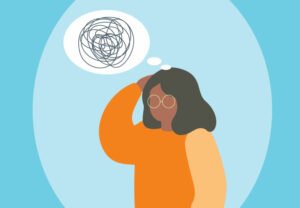
- Difficulty concentrating or focusing on an activity for long periods of time
- Confusion about the location of familiar places (such as your home)
- Having trouble storing new information in short-term memory
- Frequent spelling errors when writing words
- Repeating questions/statements made earlier in the day without realizing it
- Repeating yourself frequently during conversations (inability to remember what you just said), and mood swings.
If you are experiencing any of these symptoms. It is important to consult with a health professional for an accurate diagnosis and treatment plan.
There are many different causes of memory loss which can vary depending on a person’s age, health, and lifestyle. Some of the most common causes include tumors, hydrocephalus, Parkinson’s disease, mild depression, sleep deprivation, and other health issues. While most cases of memory loss are not curable, there are treatments available that may help improve or restore function. It is important to consult with a healthcare professional if you are experiencing any symptoms of memory loss. In order to get the best possible treatment plan.
If you are experiencing any type of memory loss, it is important to consult with a medical professional in order to find the underlying cause and receive an accurate diagnosis.
A Word From MantraCare
Your mental health — your psychological, emotional, and social well-being — has an impact on every aspect of your life. Positive mental health essentially allows you to effectively deal with life’s everyday challenges.
If you are looking for affordable Online Counseling MantraCare can help: Book a trial therapy session
